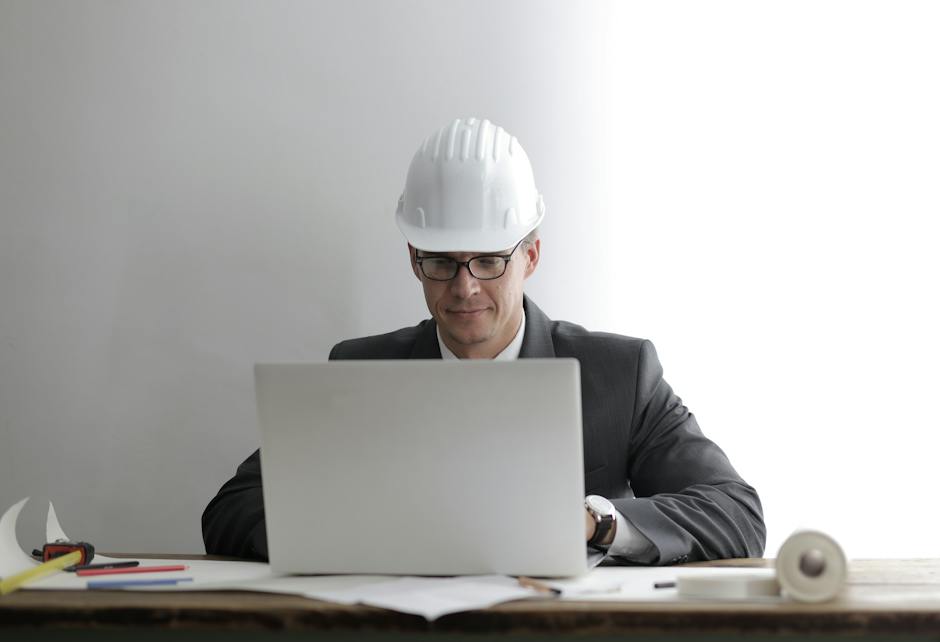The Essential Skills of a Modern Facilities Manager: Mastering the Art of Workplace Orchestration
"This article explores the key competencies required for facilities managers to excel in their multifaceted roles. From communication prowess to technological savvy, we delve into the essential skills that enable these professionals to orchestrate seamless workplace operations and enhance employee experiences. "

The Essential Skills of a Modern Facilities Manager: Mastering the Art of Workplace Orchestration
In today's rapidly evolving business landscape, the role of a facilities manager has transformed from a behind-the-scenes operator to a strategic orchestrator of workplace experiences. As organizations recognize the impact of well-managed facilities on productivity and employee satisfaction, the demand for skilled facilities managers continues to grow. This article explores the essential skills that define successful facilities managers in the modern workplace.

The Multifaceted Role of a Facilities Manager
Facilities managers are the unsung heroes of the corporate world, ensuring that the physical environment supports and enhances the work of every employee. Their responsibilities span a wide range of areas, from maintaining building systems to implementing cutting-edge workplace technologies. Let's delve into the key skills that enable these professionals to excel in their diverse roles.
1. Communication and Interpersonal Prowess
At the heart of effective facilities management lies the ability to communicate clearly and build strong relationships across all levels of an organization. Facilities managers must be adept at:
- Articulating complex technical issues in layman's terms
- Negotiating with vendors and contractors
- Collaborating with various departments to align facility operations with organizational goals
- Addressing employee concerns and feedback regarding workplace conditions
Strong interpersonal skills enable facilities managers to navigate the human aspect of their role, fostering a positive workplace culture and ensuring that facility-related changes are well-received by staff.
2. Technological Acumen
In an era of smart buildings and digital transformation, facilities managers must stay abreast of the latest technological advancements. This includes:
- Proficiency in facility management software and building automation systems
- Understanding of IoT devices and their applications in workplace management
- Knowledge of energy management technologies and sustainable building practices
- Familiarity with space management tools and occupancy analytics
By leveraging technology effectively, facilities managers can optimize resource allocation, improve energy efficiency, and enhance the overall workplace experience.

3. Strategic Planning and Data-Driven Decision Making
Modern facilities managers are expected to contribute to strategic business objectives. This requires:
- The ability to analyze facility-related data and derive actionable insights
- Skills in budget forecasting and cost management
- Capacity to develop long-term facility plans aligned with organizational growth
- Expertise in risk assessment and mitigation strategies
By adopting a data-driven approach, facilities managers can make informed decisions that balance operational efficiency with employee needs and business goals.
4. Adaptability and Problem-Solving Skills
The dynamic nature of facility management demands a high degree of adaptability. Successful facilities managers excel at:
- Responding quickly to unexpected issues, from equipment failures to security concerns
- Developing creative solutions to complex problems within budget constraints
- Balancing competing priorities and managing multiple projects simultaneously
- Staying calm under pressure and maintaining a positive attitude in challenging situations
These skills enable facilities managers to navigate the unpredictable aspects of their role with confidence and efficiency.
5. Knowledge of Compliance and Safety Regulations
Ensuring a safe and compliant workplace is a critical responsibility of facilities managers. This requires:
- In-depth understanding of building codes, health and safety regulations, and environmental standards
- Ability to implement and maintain comprehensive safety programs
- Knowledge of emergency preparedness and response procedures
- Familiarity with accessibility requirements and inclusive design principles
By prioritizing compliance and safety, facilities managers protect both the organization and its employees from potential risks and liabilities.

The Future of Facilities Management
As workplaces continue to evolve, the role of facilities managers will only grow in importance. The integration of remote work, the focus on employee well-being, and the increasing emphasis on sustainability are all trends that will shape the future of facilities management.
Facilities managers who continually develop their skills and embrace innovation will be well-positioned to lead their organizations into the future of work. By mastering the art of workplace orchestration, these professionals play a crucial role in creating environments where employees can thrive and businesses can succeed.
In conclusion, the modern facilities manager is a multifaceted professional whose diverse skill set enables them to navigate the complexities of today's workplace. From fostering communication to leveraging cutting-edge technology, these essential skills form the foundation of successful facilities management. As organizations increasingly recognize the strategic value of well-managed facilities, the demand for skilled facilities managers will continue to rise, making this an exciting and rewarding career path for those ready to take on the challenge.
Want to learn more about Workplace Experience?
Explore our complete guide with more articles like this one.


